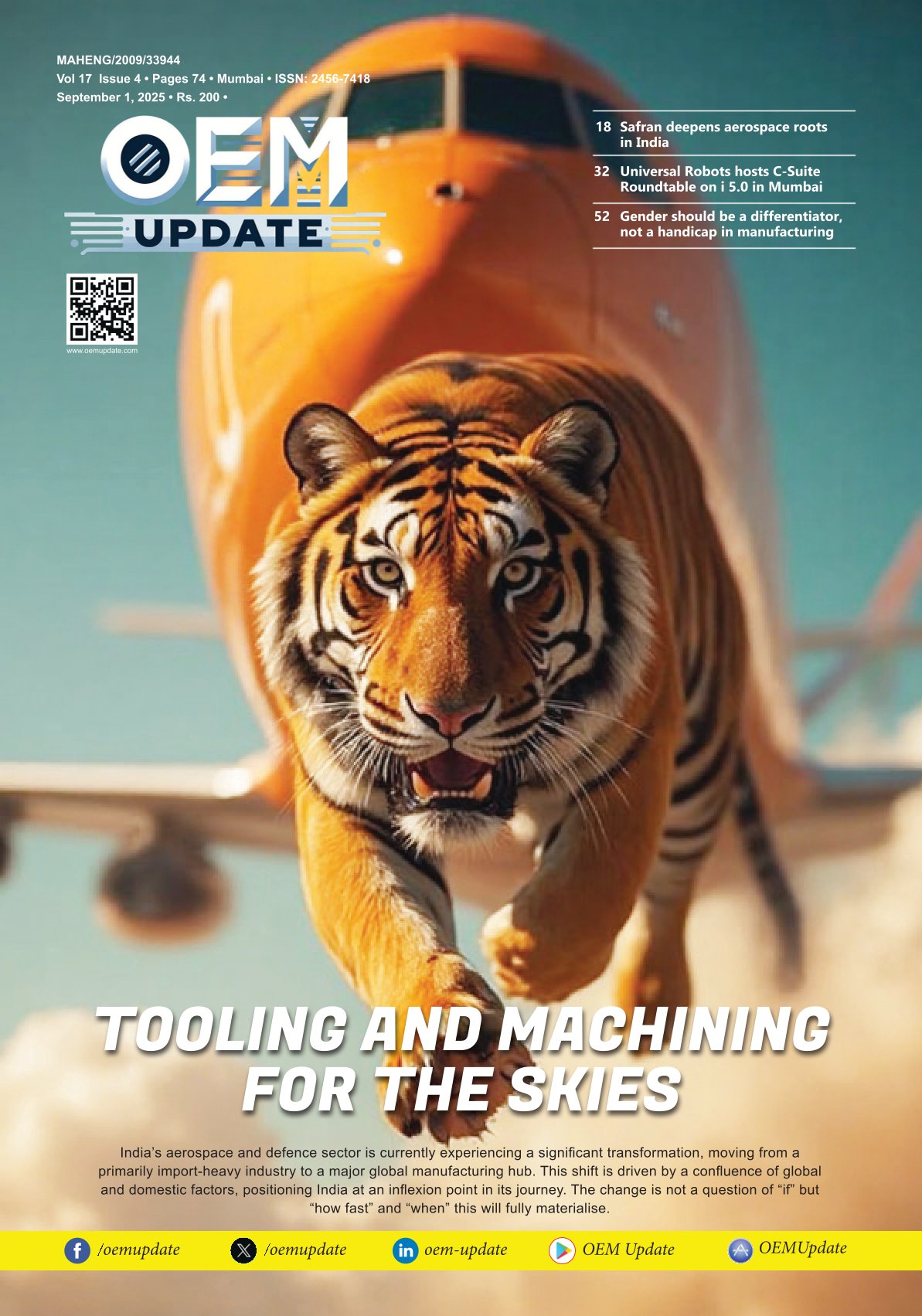Automation and IoT in metrology lead to precise forecasting
By OEM Update Editorial November 30, 2023 2:27 pm IST
Machine learning algorithms and advanced data visualisation tools are aiding users in comprehending and predicting patterns with greater precision and efficiency, affirms Venkataramanan R, Business Line Manager- Paint Process Automation, Robotics and Discrete Automation, ABB India.
How do robotics play a role in improving performance and finishing for surface coating processes?
Robotics and automation have a significant impact on enhancing performance and achieving better results in the painting process. They offer several key advantages, including enhanced precision and uniformity, increased speed, and improved safety.
Robots are precisely programmed to execute and deliver precise paint applications, and consistency and accuracy are achieved, reducing the need for touch-ups and rework. This leads to a more efficient process and a superior finish. Robots ensure uniform application and eliminate issues like missed spots or uneven coating, resulting in a high-quality appearance across all painted products, regardless of the production volume.
Furthermore, robots work faster, enabling quicker and more efficient paint applications. This saves time and reduces production cycles, leading to cost savings and improved productivity. In today’s fast-paced world, customers expect prompt delivery of their vehicles, and robotics can help meet these demands.
Additionally, the painting process can be hazardous due to exposure to toxic fumes and chemicals. Robots contribute to improved safety by creating a sealed environment that minimises the risk to human operators. This protects workers from potential health hazards and reduces their fatigue levels.
In summary, incorporating robotics into the painting significantly enhances performance and finishing by delivering precise, efficient, and consistent outcomes. This results in increased productivity, superior quality, and reduced costs, making it a valuable investment for the manufacturing industry.
What are some of the latest developments in eco-friendly coating processes from an automation point of view?
Sustainability is a critical component and a core principle for ABB. Through great initiatives and our innovative products, solutions and services, we enable a low-carbon society, preserve resources and promote social progress. ABB Research & Development aims to bring in eco-friendly coating processes that reduce the environmental impact of traditional coating processes. Here are some of the latest developments for eco-friendly coating from an automation point of view.
High Transfer efficiency applicators: ABB’s paint robots have improved paint transfer efficiency by 15-20%, ensuring more paint is applied to the vehicle body with less loss to the air, substantially reducing volatile organic compounds and greenhouse gas emissions. This also helps reduce the coating booth’s treatment process and reduces chemical emissions.
ABB’s Ability™ Connected solutions: Such software is designed to boost efficiency, reduce operating costs and decrease energy consumption. ABB’s IoT-enabled systems, meanwhile, help customers to achieve 98 per cent OEE (Overall Equipment Effectiveness), with machines such as ABB’s RB1000i atomiser providing real-time analysis and diagnostics through integrated and connected sensors that improve the lifespan of the equipment and reduce energy consumption by 10 per cent.
One of the foreseeable trends in paint material development is the adoption of High solid paints, which can reduce volatile organic compound (VOC) emissions by approximately 30 per cent compared to conventional paints. Similarly, water-based coatings are gaining popularity due to their low volatile organic compound (VOC) content and low toxicity. Powder coatings are also applied as a dry powder, which eliminates the need for solvents. They are more durable and do not emit any hazardous VOCs. ABB Robotic solutions are well designed to handle these materials.
Please talk about technological solutions emerging for surface coating.
The current priority is promoting sustainability to ensure a healthy environment for future generations. One crucial aspect of achieving this is reducing emissions in paint coating facilities. By addressing this issue, we can contribute to creating a cleaner and more sustainable environment for the well-being of future generations. Keeping this in mind, ABB is introducing new technology and the “Overspray free painting process” concept. The solution from ABB is Pixel paint, which helps paint a vehicle with zero oversprays, which means 100 per cent transfer efficiency. This technology will help the customer perform Tutone applications and decorative painting. Customisation will be key; any customised paint application is feasible with this pixel paint. This also eliminates the tedious masking process followed in Tutone lines.
ABB has also worked on High Transfer efficiency atomisers such as ABB’s New RB1000iS atomiser, which has improved paint transfer efficiency by 15-20 per cent, ensuring more paint is applied to the vehicle body with less lost to the air, substantially reducing volatile organic compounds and greenhouse gas emissions. This also helps reduce the coating booth’s treatment process and reduces chemical emissions.
How is the metrology system evolving with automation and IoT integration in new systems?
The metrology system is undergoing advancements with the integration of automation and IoT, particularly in the automation of data collection. For example, ABB’s Automated systems (Optifact) are being used to collect and process data from production lines. This data can be fed into models to provide real-time information about production patterns. ABB’s IoT sensors are also being used to monitor critical coating parameters such as temperature, humidity, vibrations etc. These sensors can provide continuous data feeds that can be used to forecast the problems well ahead before impacting the production lines.
These technologies also offer enhanced data visualisation capabilities. Modern monitoring systems utilise advanced tools for visualising data more intuitively and dynamically. This facilitates an easier understanding of patterns and enables users to make improved decisions based on the information presented.
In conclusion, integrating automation and IoT in metrology systems leads to more precise and timely forecasting. Machine learning algorithms and advanced data visualisation tools are aiding users in comprehending and predicting patterns with greater precision and efficiency.
Cookie Consent
We use cookies to personalize your experience. By continuing to visit this website you agree to our Terms & Conditions, Privacy Policy and Cookie Policy.







